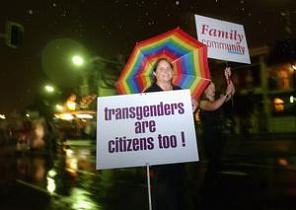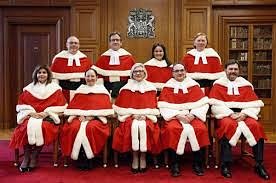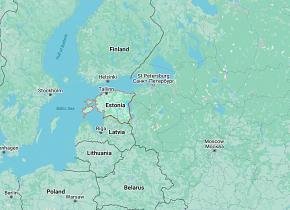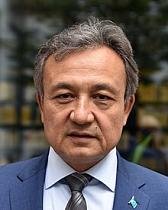Transgenders lead an alternate life in Lebanon
Even in a cafe at ABC Ashrafieh mall, Tino draws stares and giggles from other diners. “Look at those people,†she says with a tight smile. “They’re laughing at me.
Before, I would have gotten angry and tried to change them. Now, I just ignore it.â€
Tino is a transgender female, which means that she was born biologically male but identifies as a female.
The American Psychiatric Association’s Diagnostic and Statistical Manual defines transgender people as living with a mental condition known as gender dysphoric, or gender identity, disorder. The disorder is treated with therapy to help people cope with their condition, and sometimes with hormones or sex-change surgery. Although often confused with homosexuality, the medical consensus is that gender identity disorder is a mental condition entirely unconnected to a person’s sexuality.
Tino, who asked that her last name not be used to protect her anonymity, says she has felt like a woman for as long as she can remember.
“Since I was a baby, I always used to dress like a woman,†the 28-year-old says. “I would take sheets and pretend they were dresses and wear my mother’s heels. I didn’t realize there was any difference between me and my sisters.â€
Tino says that changed as she grew older and began to feel the sting of other people’s scorn and disgust.
“It’s very difficult for a child to feel like they’re trapped in the wrong body,†she says. “It’s like a prison.â€
Her eyes fill up with tears and she pauses for a minute to collect herself.
“I had troubles with my family,†she continues. “My uncle used to beat me very hard. I was abused at school. I’m crying because I have these memories and flashbacks. Imagine, even today, almost every night, I dream of my uncle beating me.â€
As difficult as things became for her, Tino says that she began to heal the moment she decided to tell her family that she wanted to shed her old identity and live as a female.
“I told them, ‘Either I kill myself, or you let me be free to live as a woman. If you are truly my family and you love me, you’ll let me do this.’â€
Most transgender people in Lebanon face similar struggles, according to Simon (who also requested that only his first name be used to protect his anonymity), a social worker at the gay rights organization Helem.
“The main challenges they face are social rejection … and discrimination when it comes to work,†says Simon. “They earn less than their colleagues, and that’s if they find a job … They get harassed in the street and often beaten.â€
Simon says that as a result of the lack of employment opportunities, many transgender people turn to prostitution.
In Simon’s experience, the constant strain of social rejection often leads transgender people to consider suicide.
“Every transgender person I know has tried to commit suicide more than once,†he says.
Dr. Michael Khoury, a clinical psychologist based in Beirut who treats many transgender people, says that when they reach out to a health care professional, most are shunned.
“Lots of people try consulting doctors,†he says. “Most doctors in Lebanon faced with a transgender patient are inaccurate and condescending, if not downright abusive.â€
As for receiving treatment for their condition, sex-change surgery is illegal in Lebanon, and Simon says that hormones are difficult to obtain legally.
“Hormones are expensive, so many transgender people start hormones without consulting a doctor,†he says. “They get them on the black market, which is extremely dangerous because they don’t know the effects of these hormones or what kind of risks they might face.â€
According to Khoury, many transgender people also turn to black-market surgery. “One of my patients is a female-to-male transgender,†he says. “He had his breasts removed on the black market, and one day he showed me his scars. They were terrible.â€
Khoury says that transgender people in Lebanon face the additional challenge of living in a country with strong religious roots.
“There is a strong sense of sin and not belonging to their religion,†he says. “It’s excommunication at the deepest level.â€
Father Semaan Abou Abdo, head of the Family Affairs Committee, an organization affiliated with Bkirki, the seat of the Maronite Patriarchate, says that the church does not condone transitioning to the opposite gender.
“God has created a male and a female, therefore, sex defines that person,†he says. “The church completely rejects the idea of someone who wants to change his appearance or hurt themselves to be okay with who they are.â€
Abdo recommends that transgender people reach out to their spiritual communities for support, but says he recognizes that the condition is a psychological one that requires help from a medical professional.
“We try to give advice,†he says. “But in the end, they should go see a psychiatrist for that. The church only gives recommendations.â€
“Islam bans the purposeful act of someone transforming his or her sex,†says Sheikh Khaldoun Araymet, secretary general of the Higher Islamic Council in Lebanon, Dar al-Fatwa. “A human who suffers from this perplexing condition … is unbalanced in terms of his behavior, his religion and his psychological condition.â€
Tino takes a sip of her coffee.
“Transgender people begin their lives at night,†she says. “Very few transsexuals in Lebanon work or survive during the day.â€
When the waiter stops by the table to ask if everything is all right, she gives him a big smile, to which he blinks at in confusion.
“I can’t go to certain parts of the country or even parts of Beirut,†she continues when he’s gone. “If they catch a transsexual, they will beat her hard or kill her. My friend got beaten by a gang. They knocked out her teeth and tore her back up and left her at a village far from Beirut.â€
Read more?
Internet site reference: http://www.albawaba.com/editorchoice/transgenders-lead-alternate-life-lebanon-396458
Comments
There are 0 comments on this post














